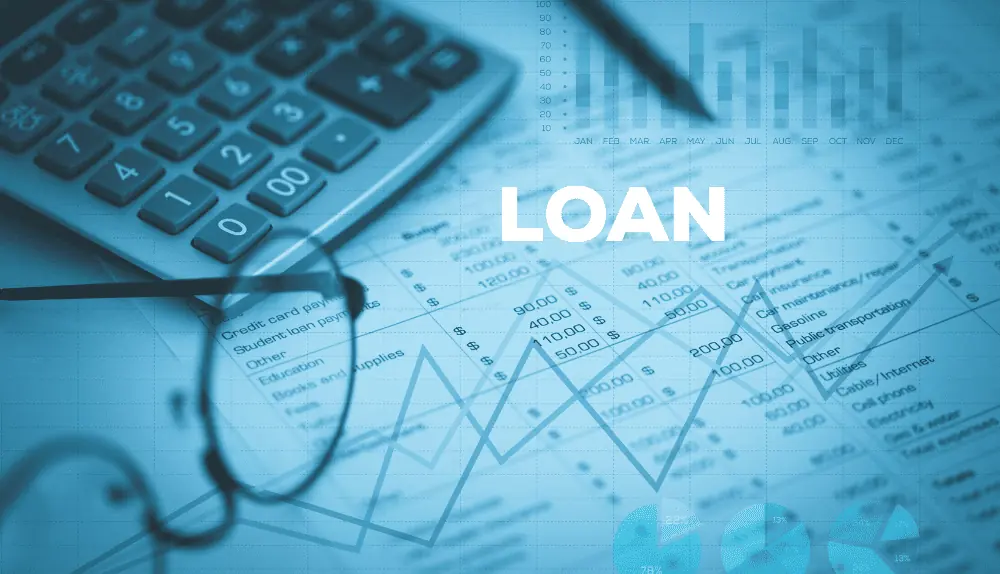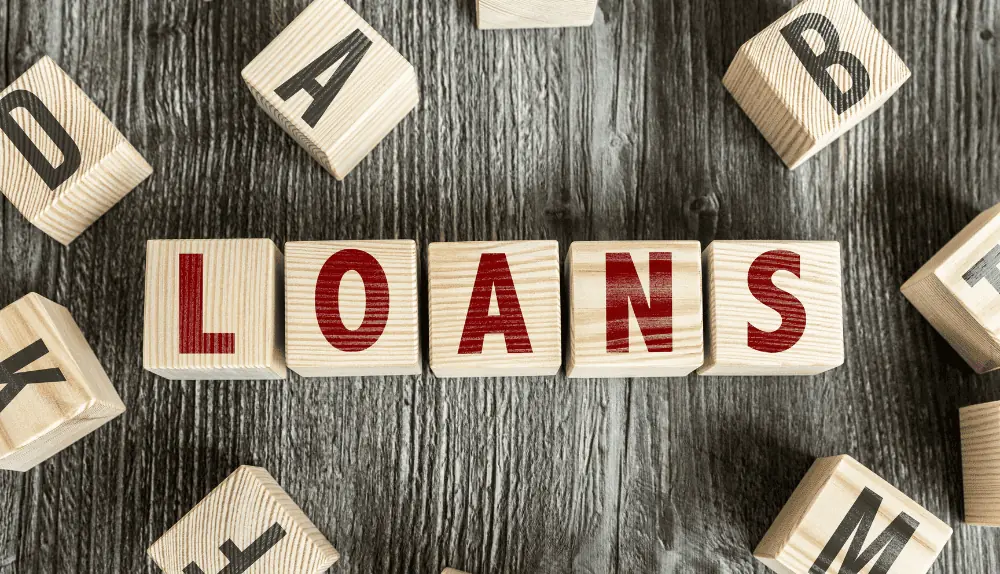Imagine being a passionate entrepreneur driven by a vision to turn your business dreams into reality. You have a brilliant concept, a strategic plan, and an unwavering determination to succeed. The only thing missing? The financial resources to bring your aspirations to life. Enter the Small Business Administration (SBA) loan, a powerful tool that can empower you to overcome financial barriers and transform your entrepreneurial dreams into thriving ventures.
From launching a startup to expanding an existing business, the SBA loan offers many possibilities, providing the crucial funding you need to fuel growth, seize opportunities, and unleash your full potential. In this article, we will explore the various ways you can leverage an SBA loan to build, strengthen, and scale your business, demonstrating how this invaluable resource can be the key that unlocks your entrepreneurial journey.
What is an SBA Loan?
An SBA loan, or Small Business Administration loan, is a financing option designed to support the growth and development of small businesses in the United States. The SBA, a federal agency, collaborates with partnering lenders to provide loans with favorable terms and conditions. These loans are not directly funded by the SBA; instead, the agency guarantees a portion of the loan, reducing the risk for lenders and making it easier for small businesses to secure funding.

In comparison to traditional bank loans, SBA loans have a number of benefits, such as cheaper interest rates, longer repayment terms, and more flexible qualifying requirements. They can be used for a variety of business needs, including starting a new company, growing an existing one, buying goods or equipment, paying off debt, and even buying commercial real estate.
The SBA offers different loan programs to cater to the diverse needs of small businesses, such as the 7(a) loan program, the CDC/504 loan program, and the microloan program. Each program has its own specific requirements and benefits, providing small business owners with options that align with their unique circumstances.
Overall, SBA loans serve as a lifeline for entrepreneurs, empowering them to access the funding they need to fuel growth, create jobs, and make their entrepreneurial dreams a reality.
Types of SBA Loans
Starting and growing a small business often requires access to capital, and securing the necessary funding can be a significant challenge for entrepreneurs. Thankfully, the Small Business Administration (SBA) offers a range of loan programs designed to support small businesses in the United States. These SBA loans provide favorable terms and conditions, making them an attractive financing option for business owners. From the versatile SBA 7(a) loan to specialized programs like the CDC/504 loan and Microloan program, there are various types of SBA loans available to meet different business needs. Let’s explore these loan programs in more detail:
SBA 7(a) Loan
The SBA 7(a) loan program is the most popular and flexible option. It provides funding for various business purposes, making it highly versatile. Whether you need working capital, want to purchase equipment or inventory, refinance existing debt, or acquire an existing business, the 7(a) loan can be a suitable choice. The loan amount can go up to $5 million, and the repayment terms vary depending on the use of funds.
SBA CDC/504 Loan
The SBA CDC/504 loan program is designed for small businesses aiming to finance major fixed assets, such as real estate or large equipment. This loan is offered in partnership with Certified Development Companies (CDCs). It provides long-term, fixed-rate financing with low down payments, making it an attractive option for businesses looking to acquire or renovate commercial properties, expand facilities, or invest in expensive machinery.
SBA Microloan
The SBA Microloan program is tailored for startups and small businesses in need of smaller loan amounts. Typically ranging from a few thousand dollars up to $50,000, these loans serve as seed capital, working capital, or funds for equipment and inventory. Microloans are administered by nonprofit organizations, and they often come with additional benefits such as technical assistance and mentorship, providing valuable support to borrowers.
SBA Disaster Loans
SBA Disaster Loans are specifically designed to assist businesses, homeowners, and renters affected by natural disasters. In the wake of events like hurricanes, floods, or earthquakes, these loans provide financial assistance to repair or replace damaged property, inventory, or equipment. The loans can cover both physical damage and economic injury caused by the disaster, offering crucial support to affected individuals and businesses during the recovery process.
SBA Export Loans
SBA Export Loans are aimed at businesses engaged in international trade. These loans support export-related activities, including expanding export capabilities, developing foreign markets, and financing specific export orders. The SBA provides several export loan programs, such as the Export Working Capital Program (EWCP) and the International Trade Loan (ITL), offering financial resources to help small businesses participate in global commerce.
SBA CAPLines
SBA CAPLines are a group of SBA loan programs designed to meet the short-term and cyclical working capital needs of small businesses. They provide lines of credit to finance specific purposes, such as managing seasonal cash flow fluctuations, financing contract-related expenses, or supporting construction projects. CAPLines loans are useful for businesses with varying working capital requirements throughout the year.
Use Cases of SBA Loan Types
SBA 7(a) Loan
- Working capital: Use the loan funds to cover day-to-day expenses, payroll, inventory, or marketing efforts.
- Business expansion: Finance the expansion of your business, whether through opening new locations, hiring additional staff, or investing in marketing and advertising campaigns.
- Equipment and inventory purchase: Purchase or upgrade equipment, machinery, or inventory to improve operational efficiency or meet increased customer demand.
- Debt refinancing: Consolidate high-interest debts into a more manageable loan with lower interest rates and longer repayment terms.
SBA CDC/504 Loan
- Commercial real estate purchase: Acquire or renovate commercial properties, including office spaces, retail stores, or manufacturing facilities.
- Expansion or construction projects: Fund expansion projects, such as adding a new wing to an existing facility or constructing a new building to accommodate business growth.
- Large equipment purchase: Finance the purchase of expensive equipment or machinery that is vital to your business operations.
SBA Microloan
- Startup capital: Obtain seed funding to launch a new business venture or cover initial expenses such as equipment, inventory, or marketing.
- Working capital: Access short-term capital to manage cash flow, purchase inventory, or cover day-to-day operating expenses.
- Equipment and supplies: Purchase essential equipment, machinery, or supplies necessary for your business operations.
- Business improvements: Invest in improvements or renovations to enhance the appearance or functionality of your business premises.
SBA Disaster Loans
- Property repairs: Use the loan funds to repair or rebuild damaged property, including buildings, equipment, and inventory, following a natural disaster.
- Working capital assistance: Receive financial support to cover ongoing expenses during the recovery period after a disaster.
- Economic injury recovery: Access funds to help compensate for revenue loss or decreased business activity resulting from a disaster.
SBA Export Loans
- Export financing: Secure funding to support export activities, such as developing foreign markets, financing export orders, or expanding export capabilities.
- Working capital for export-related operations: Obtain capital to cover costs associated with exporting goods or services, including production, packaging, shipping, and marketing expenses.
SBA CAPLines
- Seasonal working capital: Manage cash flow fluctuations that occur due to seasonal demand by accessing a line of credit to cover expenses during slower periods.
- Contract financing: Secure financing to fulfill specific contracts or orders, including covering the costs of labor, materials, and other project-related expenses.
- Construction financing: Access funds for construction projects, such as building renovations or expansions, with repayment terms tailored to the construction timeline.
These are just a few examples of how each type of SBA loan can be used. The versatility and flexibility of SBA loans make them suitable for a wide range of business needs. It’s important to consult with an SBA-approved lender to determine the best loan program for your specific use case and financial requirements.
Requirements of SBA Loan
The requirements for SBA loans may vary depending on the specific loan program and the lender involved. However, here are some common requirements and considerations for SBA loans:
Eligible Business Type
To qualify for an SBA loan, your business must typically fall within the definition of a small business as outlined by the SBA. The size standards may vary based on the industry you operate in, and they are typically determined by factors such as annual revenue or number of employees.
Good Credit History
Lenders will assess the creditworthiness of the business and its owners. Generally, a good credit history is important, although some loan programs may be more flexible for startups or businesses with less established credit.
Collateral
SBA loans often require collateral, such as business assets, real estate, or personal assets, to secure the loan. Collateral provides a form of security for the lender in case of default.
Business Plan
Lenders typically require a comprehensive business plan that outlines your business’s purpose, market analysis, financial projections, and repayment strategy. A well-prepared business plan demonstrates your understanding of the industry, market potential, and your ability to manage the loan effectively.
Financial Statements
You will need to provide financial statements for your business, including profit and loss statements, balance sheets, and cash flow statements. These statements offer insights into the financial health of your business and its ability to repay the loan.
Personal Guarantee
In many cases, the owners of the business will be required to provide a personal guarantee for the loan. This means that they are personally liable for repayment if the business is unable to fulfill its obligations.
Documentation and Paperwork
SBA loans involve a significant amount of documentation. Be prepared to provide personal and business tax returns, bank statements, legal documents, licenses, permits, and other relevant paperwork as requested by the lender.

It’s important to note that meeting the basic requirements does not guarantee loan approval. Each lender may have its own additional criteria and evaluation process. Working with an SBA-approved lender and seeking professional guidance can help ensure that you meet the specific requirements for the SBA loan program you’re interested in. Additionally, familiarizing yourself with the SBA’s loan application checklist and consulting with a financial advisor or accountant can help streamline the loan application process.
Benefits of SBA Loan
SBA loans offer several benefits to small businesses, making them an attractive financing option. Here are some key benefits of SBA loans:
Favorable Loan Terms
SBA loans typically come with favorable terms and longer repayment periods compared to conventional loans. This allows borrowers to have manageable monthly payments and more flexibility in their cash flow.
Lower Down Payments
SBA loans often require lower down payments compared to traditional loans. For example, the SBA 7(a) loan program may require down payments as low as 10% for certain transactions, enabling businesses to preserve their capital for other operational needs.
Access to Capital
SBA loans provide small businesses with access to capital that may otherwise be difficult to obtain. They offer funding for various purposes, such as working capital, equipment purchases, real estate acquisitions, and business expansion.
Flexible Use of Funds
SBA loans offer flexibility in how the funds can be utilized. Business owners can use the loan proceeds for a wide range of purposes, including purchasing inventory, refinancing debt, hiring employees, marketing initiatives, and more, depending on the loan program’s guidelines.
Lower Interest Rates
SBA loans typically feature lower interest rates compared to conventional loans. The SBA sets a maximum interest rate that lenders can charge, providing businesses with the opportunity to secure affordable financing.
Assistance for Startups and Small Businesses
SBA loans are accessible to startups and small businesses that may face challenges in obtaining traditional financing. The SBA provides support for businesses with limited operating history, lower credit scores, or insufficient collateral, allowing them to access the capital needed to grow and succeed.
Counseling and Resources
The SBA offers counseling and resources to borrowers, helping them navigate the loan process, develop business plans, and improve their financial management skills. This support can contribute to the long-term success and sustainability of small businesses.
Additional Loan Programs
In addition to the standard loan programs, the SBA provides specialized loan programs for specific purposes or demographics. These programs include export loans, disaster loans, microloans, and more, catering to the unique needs of different types of businesses.
Building Credit History
Successfully repaying an SBA loan can help small businesses establish and improve their credit history, making it easier to secure future financing on favorable terms.
It’s important to note that while SBA loans offer numerous benefits, they do require careful consideration and diligence in the application process. Consulting with an SBA-approved lender and seeking professional advice can help determine if an SBA loan is the right choice for your specific business needs.
SBA Loan Restrictions
SBA loans have certain restrictions that borrowers must adhere to. Here are some common restrictions associated with SBA loans:
Use of Funds
There are detailed rules for how SBA loans can be used. Generally speaking, the money must be utilized for legal commercial endeavors like buying merchandise or equipment, paying off debt, funding working capital, or buying real estate. It is prohibited to use money for non-business-related or personal expenses.
Prohibited Activities
SBA loans cannot be used to finance certain activities, such as speculating in real estate, investing in rental properties, or providing loans to other individuals or businesses. Additionally, the loans cannot be used for activities that are illegal or considered harmful to the community or environment.
Repayment Ability
Borrowers must demonstrate their ability to repay the loan based on their business’s projected cash flow and financial performance. If the business lacks the financial capacity to repay the loan, the SBA may reject the loan application.
Ownership Structure
SBA loans typically require that the borrower has a significant ownership stake in the business. This means that passive investors or individuals who do not have a direct role in the business may not be eligible for the loan.
Personal Guarantee
As mentioned earlier, SBA loans often require a personal guarantee from business owners. This means the owners become personally liable for the loan if the business fails to repay. This personal guarantee ensures that the lender has recourse in case of default.
Compliance with SBA Regulations
Borrowers must comply with all applicable SBA regulations throughout the loan term. This includes providing accurate financial information, maintaining appropriate insurance coverage, and fulfilling any reporting requirements specified by the SBA or the lender.
Other Financing Sources
In some cases, the SBA may restrict borrowers from obtaining additional financing from other sources while the SBA loan is outstanding. This is to ensure that the borrower’s financial obligations are manageable and that the business does not become overleveraged.
It’s important to note that these restrictions may vary depending on the specific SBA loan program, lender, and the terms of the loan agreement. Reading and understanding the loan documents, working closely with the lender, and seeking professional advice can help ensure compliance with the restrictions associated with the SBA loan.
Final Words
In conclusion, Small Business Administration (SBA) loans provide a valuable and accessible financing option for entrepreneurs and small business owners. With various loan programs tailored to different business needs, SBA loans offer favorable terms, lower down payments, and longer repayment periods compared to conventional loans.
The versatility of SBA loans allows for a wide range of use cases, including working capital, equipment purchases, business expansion, real estate acquisition, disaster recovery, export financing, and more. Furthermore, SBA loans provide support for startups and small businesses, offering opportunities for growth and development. The counseling and resources provided by the SBA contribute to the long-term success of borrowers.
However, it is important to consider the requirements, restrictions, and documentation associated with SBA loans and seek professional advice to navigate the loan application process successfully. Overall, SBA loans play a crucial role in empowering small businesses and fostering economic growth, making them an essential tool for entrepreneurs in realizing their business aspirations.
Frequently Asked Questions (FAQs)
What is the difference between an SBA loan and a traditional bank loan?
SBA loans are partially guaranteed by the U.S. Small Business Administration, while traditional bank loans are not. SBA loans often offer more favorable terms, lower down payments, and longer repayment periods compared to conventional loans.
How long does it take to get approved for an SBA loan?
The timeline for SBA loan approval can vary. It typically takes several weeks to a few months, depending on factors such as the complexity of the loan, the completeness of the application, and the responsiveness of the borrower.
What credit score is needed for an SBA loan?
While credit score requirements may vary among lenders and loan programs, a credit score of around 680 or higher is generally considered favorable for SBA loan approval. However, some loan programs may be more flexible for startups or businesses with less established credit.
Can I use an SBA loan to start a new business?
Yes, SBA loans can be used to start a new business. The SBA provides loan programs specifically designed for startups, such as the SBA 7(a) loan program.
Can I apply for multiple SBA loans at the same time?
Yes, it is possible to apply for multiple SBA loans simultaneously. However, each loan application will be evaluated separately, and the lender will consider factors such as your creditworthiness, financial stability, and ability to manage multiple loans.

